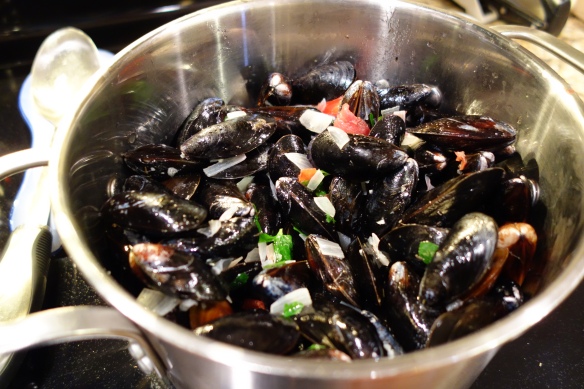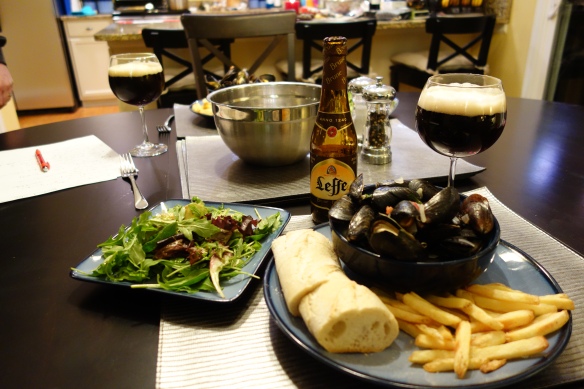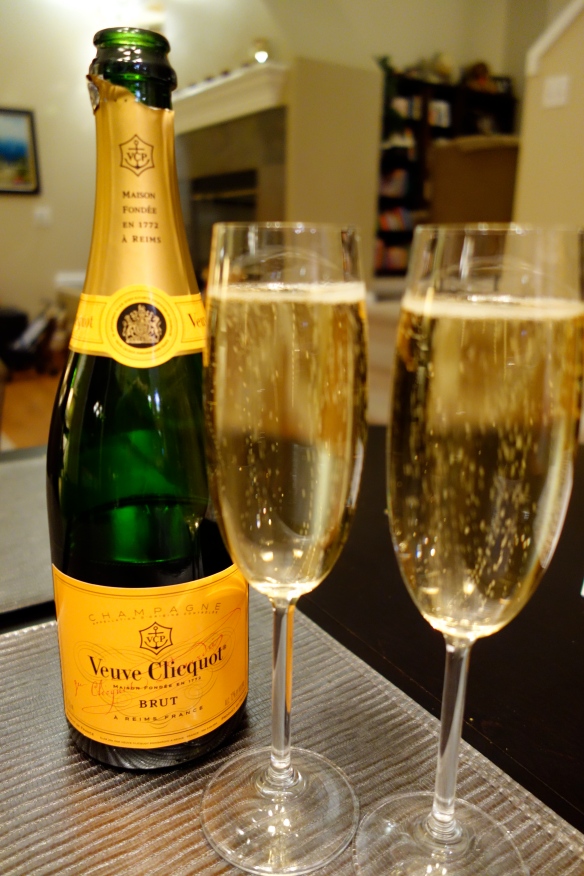 My first experience with Vegemite was when a friend offered me a spoonful.
My first experience with Vegemite was when a friend offered me a spoonful.
“Want to try it?”
“What does it taste like?”
“Kind of chocolaty.” Smirk.
So I took the proffered spoon, chomped down, and promptly gagged, spit, then went on to do my own version of Tom Hank’s scraping off his tongue à la “Big.”
Vegemite does not taste anything like chocolate. Chocolate tastes, well, heavenly, and melts in your mouth, and makes you feel like you are floating on clouds. It elevates your psyche and instills lightness where darkness once existed, benevolence where once there was stress and anxiety. Chocolate could be the answer for world peace.
Vegemite is disgusting, foul, and doesn’t belong on any food shelf anywhere.
Yet the Brits and the Australians think it’s fantastic.
Clearly, there is a cultural component to our tastes in food. I wonder how much is nature vs. nurture. Why do American kids “have” to dip vegetables in ranch dressing (I’m holding out on this one – really hoping my son will eventually eat vegetables rather than scraping his tongue with his hand à la Tom Hanks any time I feed him veggies) yet no other culture seems to have this “need”? Why do we like the things we like?
Americans, in general, adore peanut butter. Yet ask your average French person how they feel about peanut butter and they will make the same face I made when I ingested Vegemite. Root beer – we Americans love a good root beer float, right? Yet the French find it disgusting – most will say it tastes like cough medicine.
On the flip side, anchovies. The vast majority of my American friends make a sour face and stick out their tongue at the mention of anchovies. But my French friends love to put it on pizza and Caesar salads. Anchovies rarely make the ingredient list for most pizza joints in the U.S., and when I tell my French friends that I’m not a fan, I’m greeted with a surprised, “Mais, porquoi pas ?”
Then there’s pastis. A French liquor, popular in the south of France as an aperitif, especially at the end of a hot summer day. It’s flavored with anise and tastes like black licorice to me – another thing many Americans don’t tolerate well. I sat at a restaurant table full of French people one summer evening, riddled with incredulous arguments as to the merits of pastis after I took a sip from my husband’s glass and declared as politely as I could that I’d prefer to order a cool glass of rosé, thank you very much.
That was not my biggest faux pas. We took a sailboat cruise in Greece one year, led by a ½ French, ½ Greek captain. He had an intense gaze, a fiery temper, and a fabulous sense of humor. I took notes on the trip determined to write him into one of my novels as the larger than life character he was. I was both fascinated by him and a little bit scared of him. One night, while we were docked in a charming small Greek coastal village with absolutely no nightlife, he popped open a bottle of Ouzo, Greece’s anise flavored liquor, and offered it to us. Not wanting to offend, I downed my glass full as quickly as possible. He offered another round. I drank. And again. Yet again, seriously straining my constitution. Then, thank God, the bottle was emptied, but wait, no! Let’s open another! There were seven of us on deck that night, I the lone female. My stomach started to get queasy, my head woozy, and I tried to refuse the next round, but my refusal was refused. I looked to my husband for help, but he was in ouzo bliss and reeled in by male bonding.
“Vas-y ! C’est bon !”
All in the name of politesse, I took my glass, closed my eyes, and downed it as quickly as I could, my seventh or eight or fifteenth glass, I’d lost count.
Another round came. I had plans for this one. When everyone tossed theirs back, I tossed mine, too. Right off the boat and into the water.
SPLASH!
“Qu-est que c’est?”
“What was what?” I tried to play innocent, but I’m a terrible liar. One of the other guys looked from me to my glass and back.
“Did you just dump your ouzo overboard?”
“What? Dump it? I… uh… yeah. I did. Sorry.”
The captain’s eyes flashed. “You dumped my ouzo overboard? My. Ouzo?”
“I’m really sorry. I, just, I couldn’t drink anymore.”
An incredulous reaming, half-serious, half-joking, ensued, and it was determined that I must go on trial. The captain grabbed the broken table leg and it became his gavel, my husband pleaded my case, and I was sentenced to singing. In front of everyone.
So, drunk and determined to give the offended captain a good show, I grabbed the gavel, turned it into my microphone, and gave the most rousing rendition of “What Do You Do With a Drunken Sailor” that boat had ever been privy to.
I definitely can’t stomach anything with anise now.
What other flavors have you found that are popular in one country but wouldn’t fly at all in your own? I didn’t even touch on “delicacies,” like snails, frog legs, bone marrow in France, guinea pigs in Peru, or No-Idea-What-Part-of-the-Cow that was in China (all of which I’ve eaten). I’d love to hear your stories!

























